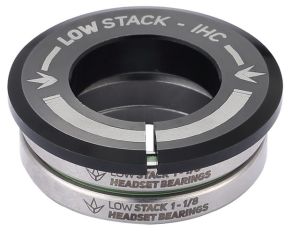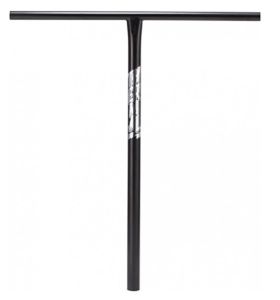Tallad
FREESTYLE SCOOTER DECKS
If you want to learn something about freestyle scooter decks, you must first of all be willing to do a now almost forgotten activity - reading.
is the basic component of a freestyle scooter. It is important to note that while freestyle scooter decks are designed for freestyle riding, and are therefore durable, they are NOT indestructible. Like all human activities, the riding of freestyle scooters requires the heavy involvement of your brain. You could also benefit from another one or two factors: Alteration of the laws of physics or the chemical table of elements. :-)
Decks are made of aluminium. Aluminium is a metal with softer composition than many other metals or materials (minerals) that the deck may come into contact with.
Keep in mind that constant grinding will eventually thin (abrade) the underside of the deck, even over a few months of such use, to the point where the rigidity of the deck is compromised. This is not a product defect. It is normal wear.

For example, consider your car tires. You buy expensive tires designed for fast and sporty driving, but if you drift your car, you can easily destroy a new set of tires in one day.
Static and dynamic loads are two different variables. While the static load is usually quoted at 100 kg (in reality, the deck can carry an elephant), the dynamic load is greatly influenced by riding style. Hard and un-dampened landings while performing tricks whereby all the kinetic energy is transferred to the deck, significantly shorten the life of the deck and damage not only the deck but the rider's joints too. When landing on an obstacle or on the ground, it is necessary for the rider to suppress the impact by bending the knees.
It should be remembered that a freestyle scooter rolls just on two small, non-inflatable wheels, whereas, for example, BMX bikes use two large inflatable wheels and a sturdy frame. Skateboards, on the other hand, use four wheels. The distribution of impact energy is therefore very different for freestyle scooters.
There is no golden rule between the price of a deck and its durability. Expensive decks can be distinguished by, for example, the materials used, their balance, their unique design and, above all, their low weight, which can be up to 40% lower than that of cheap decks. However, a very light and perfectly balanced deck does not achieve the same durability as a deck that is twice as heavy. Very light decks require special manipulation i.e. clean execution of tricks and properly executed landings.
Everyone have their own different needs. And that stands for the weight of decks or scooters in general. For some people every gram is important and the weight of the deck is the number one priority. For others, heavier decks are more suitable.
Decks do not benefit from rolling around the city or commuting to school every day on pavements of dubious quality. Other types of scooters, such as those with inflatable tires, are suitable for city travel. Using freestyle scooters to get around town can result in loose bolts, damaged headsets or wheels.....
Freestyle scooters or decks should ideally be used on smooth surfaces.
DECKS CAN BE CLASSIFIED ACCORDING TO DIFFERENT CRITERIA
a)
Decks with so called integrated headtube and decks with standard headtube.
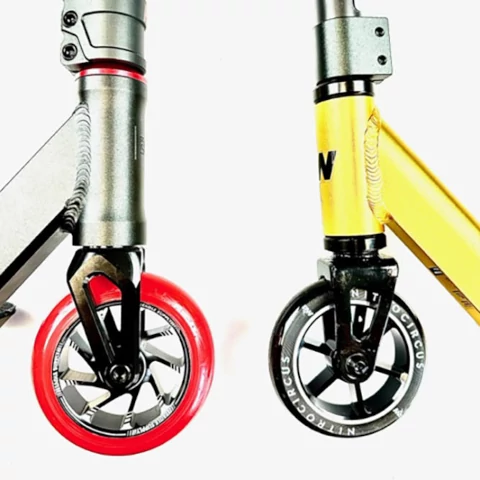
Decks with integrated headtubes use integrated headsets. Decks with standard headtubes use standard headsets. The vast majority (99%) of decks come with an integrated headtube. Integrated headtubes are the new standard. Period. Only decks with integrated headtubes can be purchased from the Gizmania store. Decks with standard headtubes are only used on cheap scooters for beginners and are practically not available in the aftermarket.
Switching from a deck with a standard headtube to one with an integrated headtube is difficult, not impossible, from a technical point of view. Please contact us if you have any questions.
b) One-piece neck vs. two-piece neck
One-piece neck decks have a *neck + headtube* section made from a single piece (monoblock) of aircraft grade aluminium alloy. These are usually forged parts. No weld = higher strength.
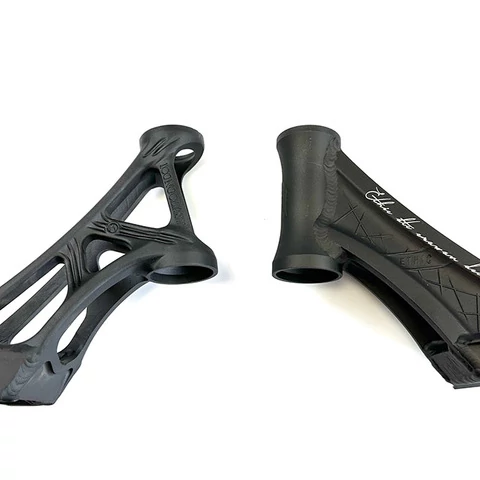
c) Deck length and width
Decks come in a variety of lengths and widths. Longer and wider decks are used for street riding, while shorter decks tend to be used for park riding. Of course, the height of the rider also plays a part in the length and width of the deck. Usually, the taller the rider is, the larger the size of the deck. Although it is quite subjective, it can be said that decks longer than 55 cm and wider than 15 cm can be considered street decks. Park decks are decks shorter than 51 cm and narrower than 13 cm. Decks between these values can be considered universal.
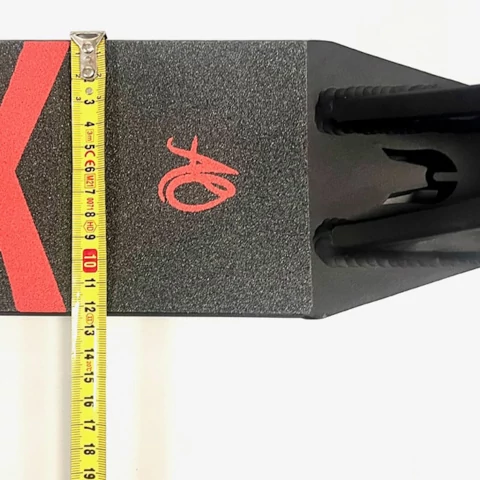
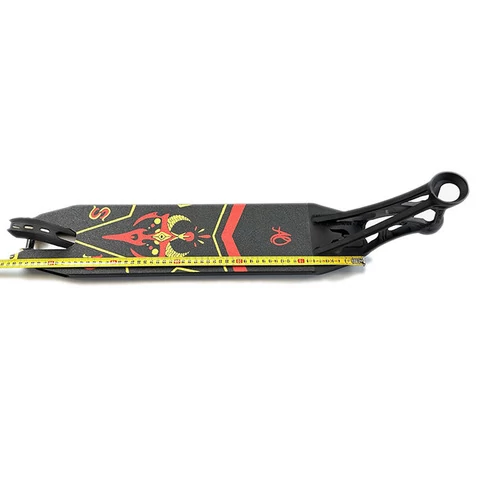
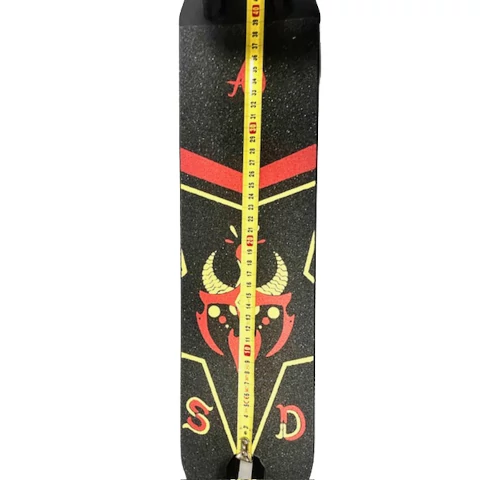
d) Compatibility with different wheel diameters
All decks available today can accommodate both 100 mm and 110 mm diameter wheels. 120 mm and 125 mm diameter wheels are thus compatible with fewer decks. 28 mm and 30 mm PU wide wheels and 12STD wheels (12STD = 12 mm axle) are only compatible with a small number of decks.
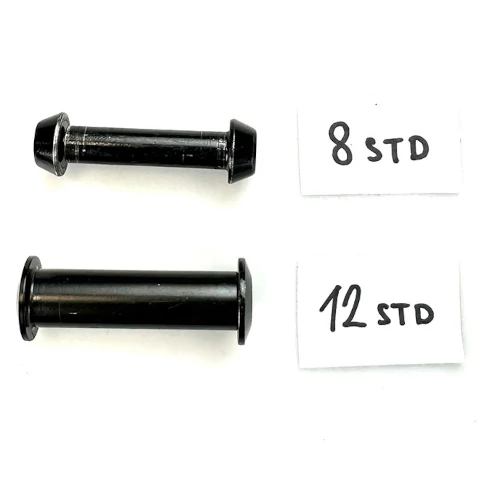
When choosing a deck, pay attention to the compatibility of the new deck with your existing wheels. Always refer to the product specifications for wheel compatibility.
HOW TO EXTEND THE LIFESPAN OF YOUR DECK
- Treat your scooter well. Don't throw it around.
- Grinding on rough surfaces (stone, concrete, railings) damages the deck faster. Therefore, look for places that have already been "discovered" and are sufficiently broken in from other riders.

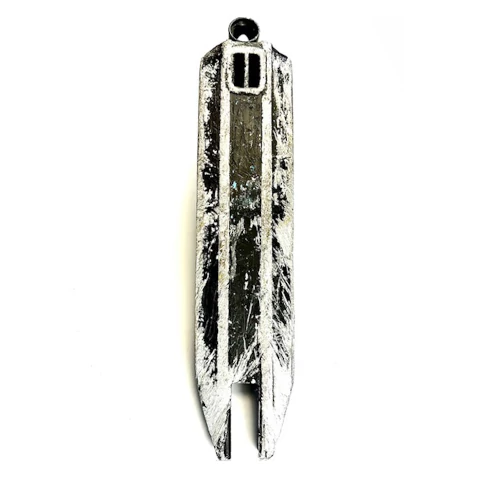
Unwaxed deck
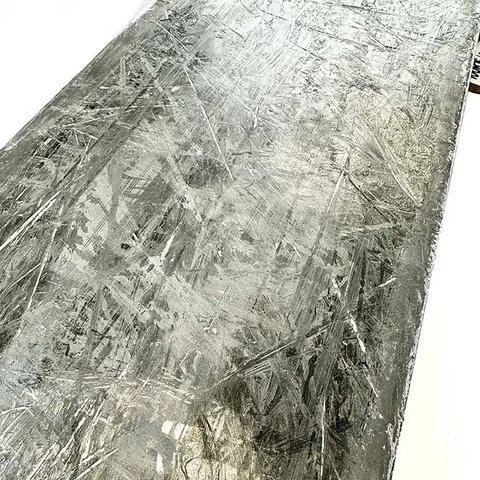
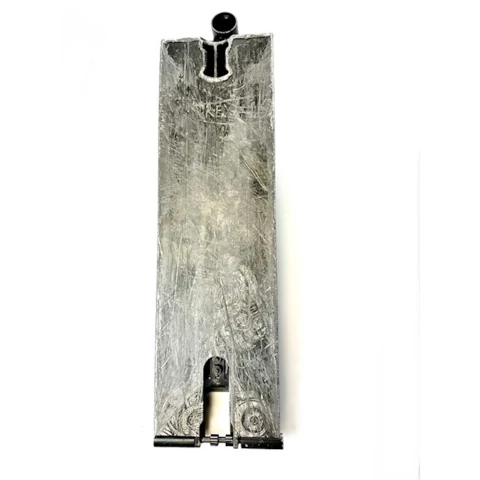
Waxed deck
- If you are using a peg-cut deck (the opposite of a box-end deck), pegs are the . You will wear out the peg instead of the deck but a peg is significantly cheaper than a deck.
- . Waxing costs next to nothing and saves the bottom of the deck (just like waxing saves the ski slide).
- Also wax the obstacle if park/spot protocol allows it
- Do not ride with loose brake and axles
- Make sure all parts of the scooter are tightened properly (headset, rear axle). Loose bolts destroy not just the bearings but also the deck.
- Do not ride in the rain or wet conditions
- Perform tricks in a clean manner. The more you suppress the landing with your bent knees, the more you save not only the deck but also your joints.
- If you are riding in a skatepark, try to land on the inclined surface of the obstacle, this will dampen the impact considerably. The worst thing to do is to perform tricks called FLY-OUTS = landing off the ramp on a flat surface.
- Do not lend your scooter to friends. They may weigh 30 kg more and have a completely different riding style.
HOW TO CHOOSE THE RIGHT DECK
- Are you tall? Get a bigger deck (and vice versa)
- Do you prefer street riding? Get a longer deck
- Do you prefer park riding? Get a shorter deck
- Will you be using your deck frequently for grinding without using pegs? Choose the widest deck possible with a flat bottom and box-ends
- Want a stronger deck? Choose a monoblock deck




